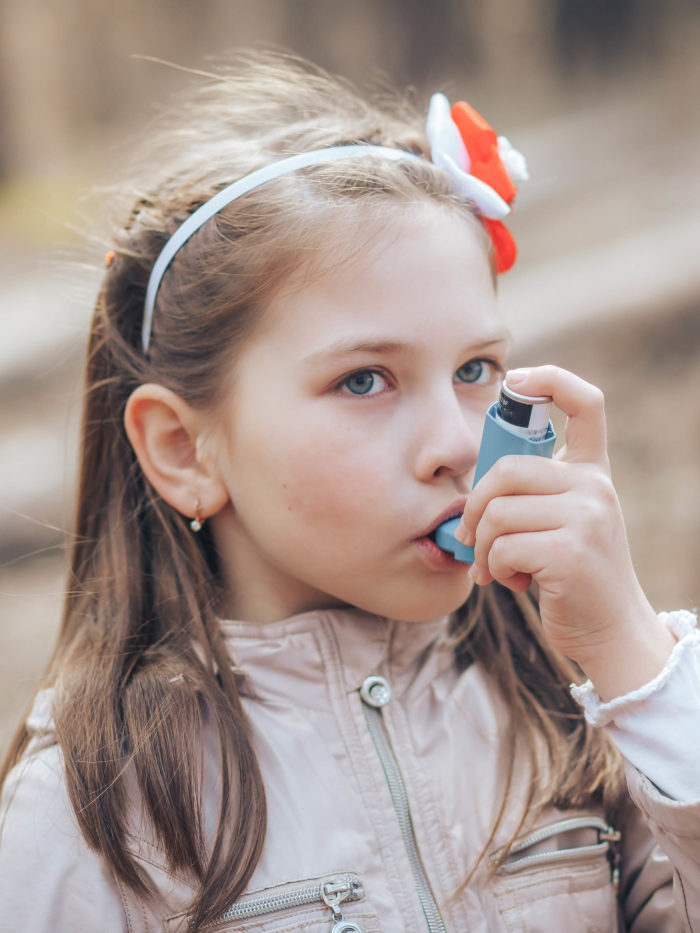Getting a cold or the flu is a bummer for anyone, but these common illnesses can be extra challenging for children with asthma.
Viruses more often than not will worsen asthma, says Dr. Wan-Yin Chan, a CHOC allergist/immunologist.
Already, people with asthma have inflamed airways to the lungs. Coughing and sneezing prompted by a cold or the flu adds extra stress on these airways, which can trigger an asthma attack.
“Having a cold or flu can result in inflammation of the lung tissues which leads to increased bronchial hyperreactivity, which can result in asthma symptoms such as wheezing, excessive cough, shortness of breath or chest tightness,” Dr. Chan explains.
While asthmatic children are no more susceptible to catching a cold or flu than other people, they are more likely to suffer complications, such as respiratory infections. In general, allergies may predispose a patient to such infections, and most asthmatics are allergic.
In these cases, the same added stress on the airways that triggers asthma attacks can lead to infections like bronchitis or pneumonia.
Because of their added vulnerability, it’s important that children with asthma work to avoid contracting the flu by getting their annual influenza vaccination, Dr. Chan says.
According to the Centers for Disease Control and Prevention, the injection is approved for all people aged 6 months and older. However, children ages 2 to 4 with asthma should avoid the nasal spray vaccine.
In addition to getting vaccinated, asthmatic children during cold and flu season should limit contact with sick people, wash their hands frequently, and avoid touching their eyes, nose and mouth, Dr. Chan advises.
Dr. Chan recommends some of her patients with asthma increase the dose of their daily preventative inhalers for one to two weeks at the first sign of cold or flu. Parents should check with their child’s asthma specialist for dosage instructions, she advises.





